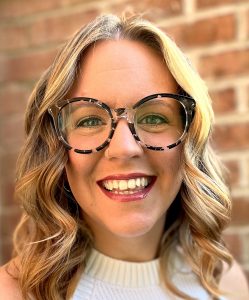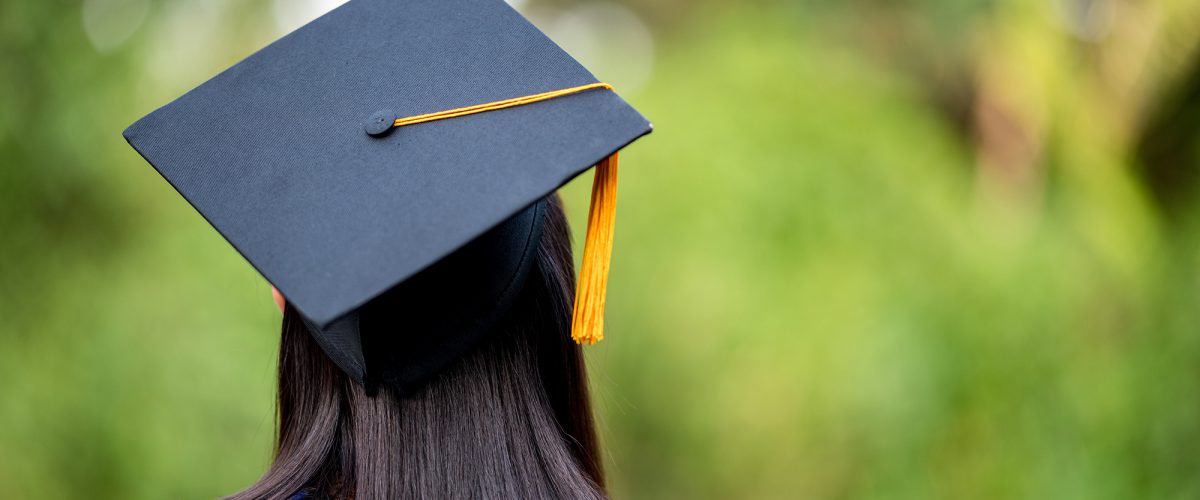Each year on the first Sunday of May, University Baptist Church of Charlottesville, Va., honors our graduates and reads a litany of blessing as we commission them “to tend to the world and help set it right once again.”
As a congregation that sits on the edge of the University of Virginia, we have a transient population of students who join us for just a few years. University students are a part of the fabric of our identity.
But our graduation Sunday does not only focus on university graduates. We honor our high school graduates as well.

Val Fisk
As a university-centered church, it is easy for us to focus on college as the “natural next step” for any young adult who has grown up in our church. Our congregation is highly educated, with a significant portion of the adults among us holding terminal degrees in their field. We care deeply about education, continued learning throughout the whole lifespan and the success and happiness of our next generation.
UBC Charlottesville also identifies as an inclusive family of faith — inclusive of all ages, backgrounds, ability levels, ethnicities, gender identities, sexual orientations and education levels. So how do we honor and include the students who will not head off to college right away — or ever — in our annual graduation celebrations? How do we make them feel included, rather than singled out and different, if they choose something other than college?
We first have to accept that a traditional college education is not a wise financial decision for every young adult. We are living in the midst of a student debt crisis, and Gen Z is projected to take on even more debt than Millennials, despite being a smaller percentage of the U.S. population.
I graduated high school in 2008 and entered my freshman year at a private Christian liberal arts college with full confidence the education I received would guarantee I could pay off the students loans I was accruing. One major economic recession later, I had a diploma, $27,000 in federal student loans, $58,000 in private student loans and three part-time, minimum-wage jobs.
“One major economic recession later, I had a diploma, $27,000 in federal student loans, $58,000 in private student loans and three part-time, minimum-wage jobs.”
I was the first generation of my family to attend college, and I didn’t know any better way. I had been told for years that going to college would provide me a more financially stable life than any other path — and I believed the people who sold me that story while asking me to sign on the dotted line.
The young adults who are graduating high school in 2023 have watched as my generation struggles under the weight of our student debt, and they are far more aware of the reality of what that debt will mean in their future.
Through the grace of God and income-based repayment plans, I have managed to stay afloat through my 20s and early 30s. My experience of living with student loan debt has, however, significantly changed the way I discuss college decisions with the high school students in my church. As a youth minister, I never start conversations by asking a high school student, “Where do you want to go to college?” Instead, I ask them, “Who do you want to be?”
Focusing on identity first changes the conversation and shifts us toward a focus on Christlike living. Asking a young adult who is about to finish high school, “Who do you want to be?” allows them to think about their answer in a broader sense. Perhaps the answer is doctor or lawyer or even pastor. Perhaps the answer is electrician or plumber or National Parks ranger. For a short time in high school, my answer was cosmetologist.
But perhaps asking “who” rather than “what” or “where” also opens the door to answers that include our Christian identity: I want to be kind. I want to be a great neighbor. I want to know I am a part of something that impacts the world beyond myself.
Historically, Baptists have defined ourselves in part through belief in the priesthood of all believers — all Christians share in the priestly role of Christ, and there is no class of special people designated to speak for or interpret God among us.
Every one of us, no matter our vocation in life, no matter what industry we earn money in, is called by God to act as a minister of Jesus in the space we inhabit. You’re a cosmetologist? You represent Christ in every highlight you create. You’re a plumber? You represent Christ as you install hot water heaters. A park ranger? You’re caring for God’s creation and helping the rest of us enjoy it safely.
Frederick Buechner writes about vocation in his beautiful work Wishful Thinking: A Seeker’s ABC: “The kind of work God usually calls you to is the kind of work (a) that you need most to do and (b) that the world most needs to have done.”
“The world does need people who feel confident that their communities of faith will support them and cheer them on as they figure out how they can joyfully address the needs of the world.”
Church, the world does not need more student loan debt, but the world does need people who feel confident that their communities of faith will support them and cheer them on as they figure out how they can joyfully address the needs of the world.
That’s the feeling I hope to create for high school graduates in our churches. God can and will work in and through every one of the students we celebrate this spring, whether they go to college or not.
In 2022, I compiled the litany of blessing for graduates we read at UBC Charlottesville on that first Sunday of May. We read these words responsively, as a reminder not only to the graduate, but to the whole congregation, that who we are and how we live is far more important than the educational path we pursue:
As you move into your next chapter, know that we hold you in our hearts and that you carry this community with you.
We commission you, through the Spirit and love of God,
To tend to the world and help set it right once again.
May you have an open heart to feel the world’s pain,
And courage enough to not be overwhelmed by its suffering.
May you pour out love to every person you encounter,
Seeing the image of the divine that sparks within each human.
We commission you, through the Spirit and love of God,
To add beauty in this world.
May you be filled with imagination
So that you can see the hope of resurrection and let it shine through you.
May you live your life with an awareness that real life is happening to you right now,
And that life does not begin at some later milestone.
We commission you to go forth from this place
As the light of the world and the salt of the earth.
You have formed us, and we are a better community because of your presence.
As God sent the Holy Spirit to the disciples at Pentecost, God sends the Spirit with you to empower you, to strengthen your faith and to comfort you in all that will come. Amen.
Val Fisk serves as associate minister for students at University Baptist Church in Charlottesville, Va. She holds degrees from Judson University and Truett Seminary at Baylor University. In her spare time, Val provides editing services for self-publishing authors.


